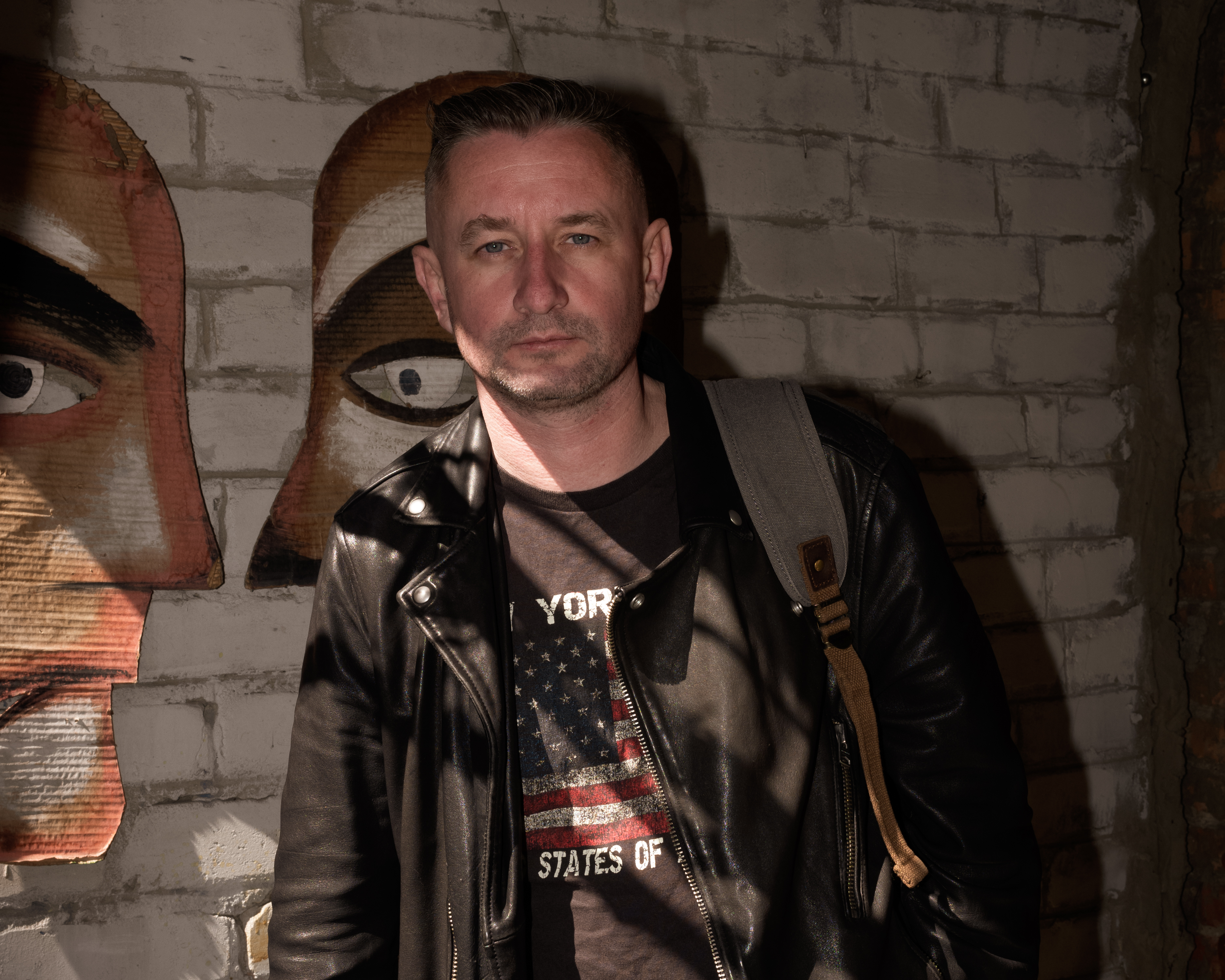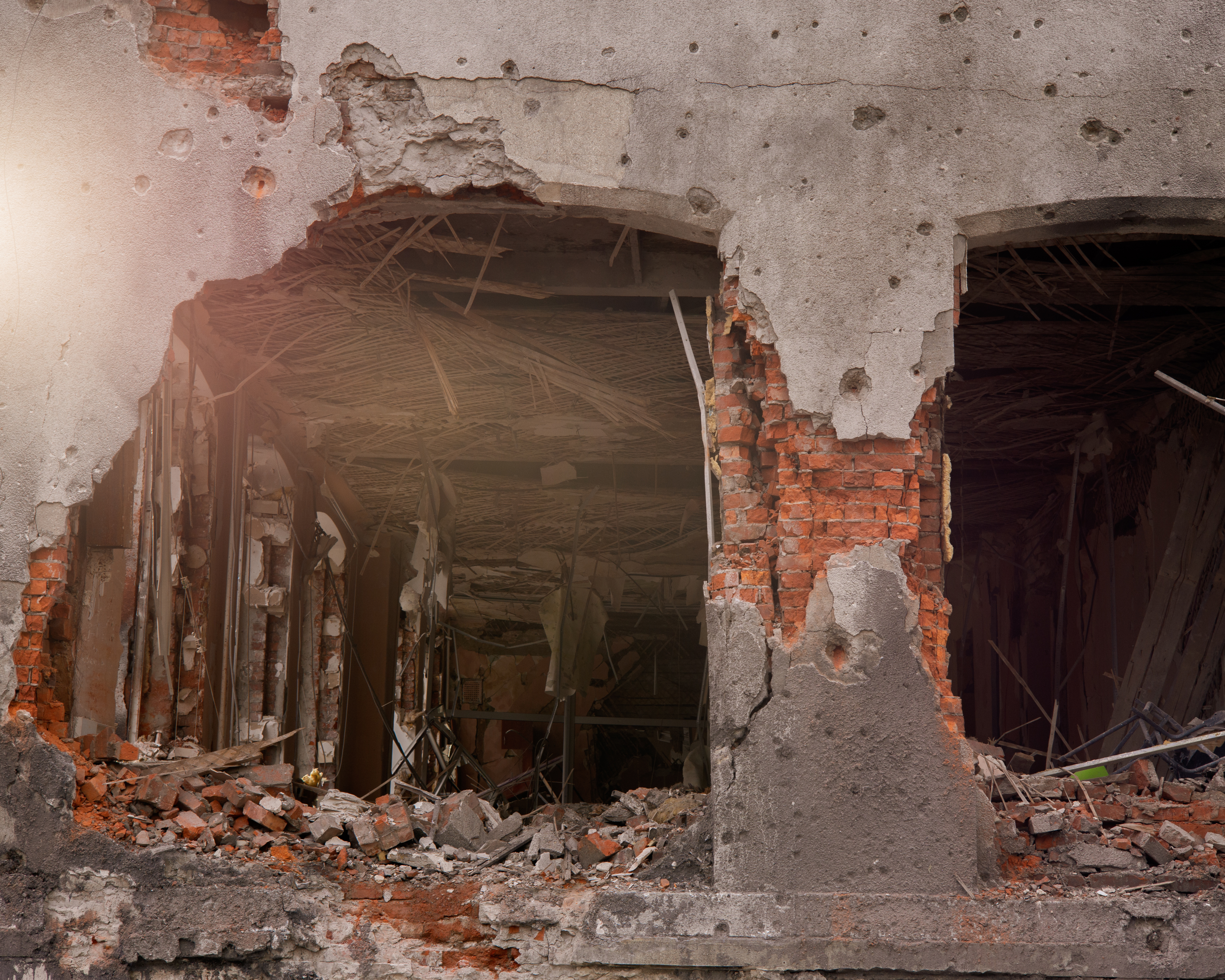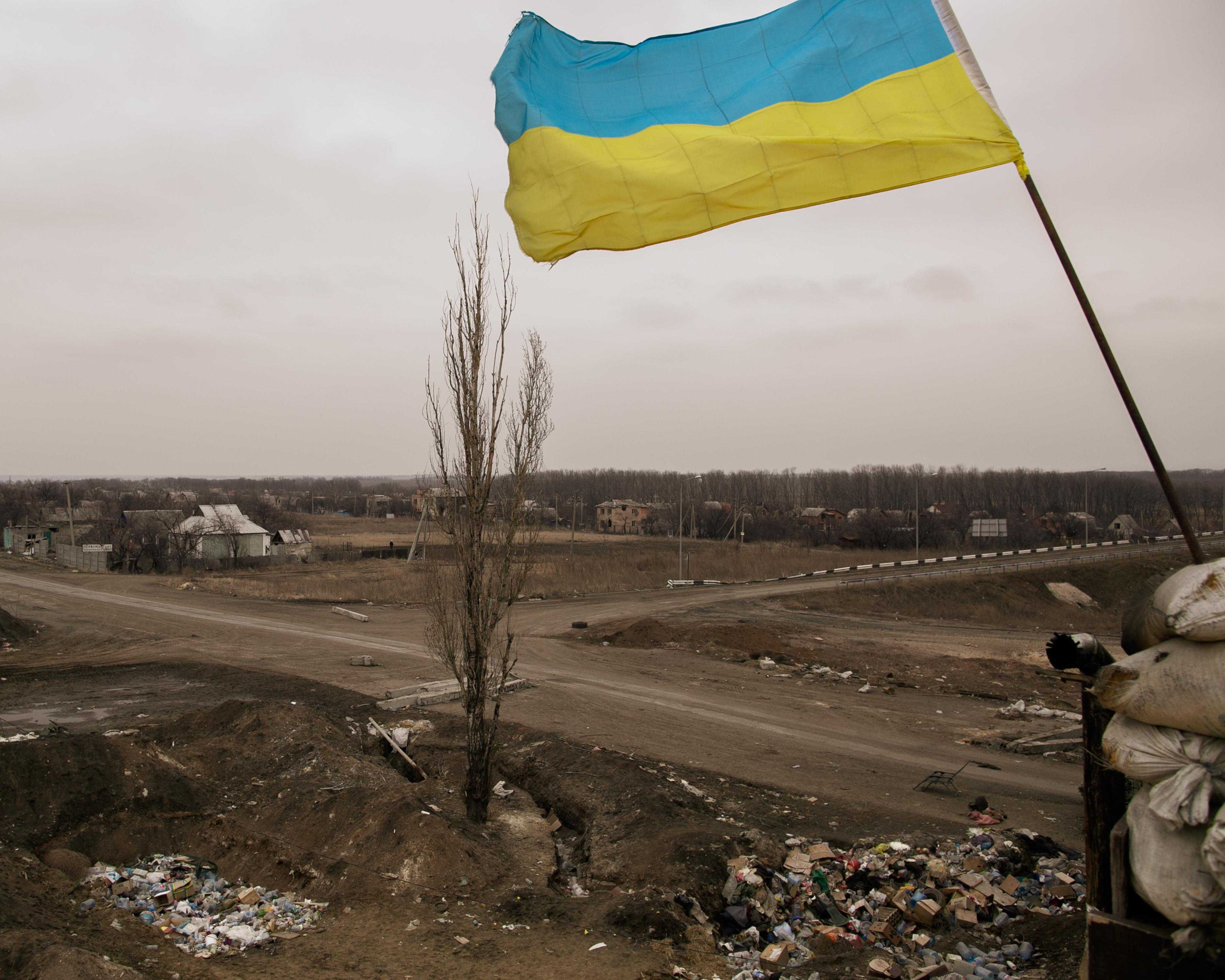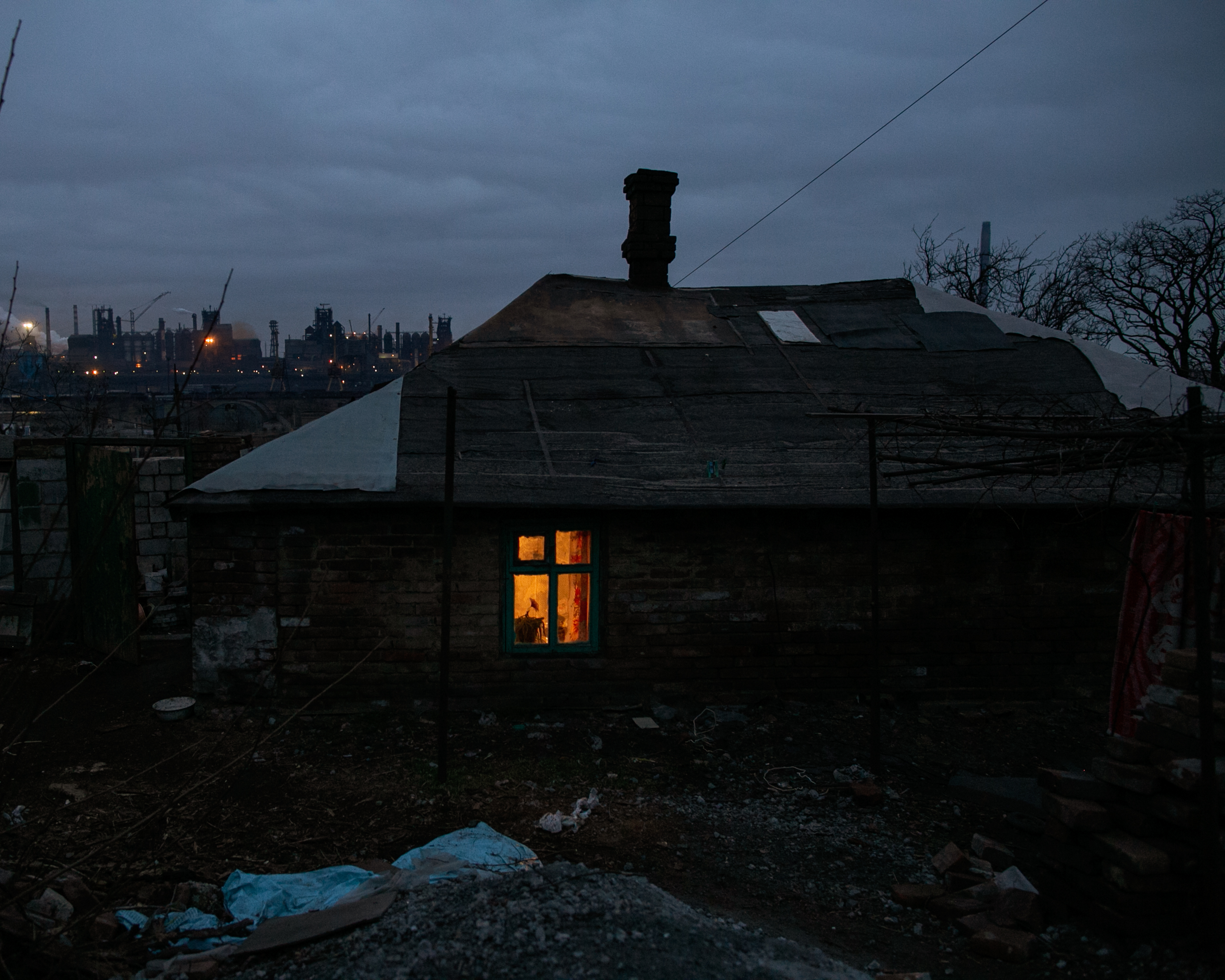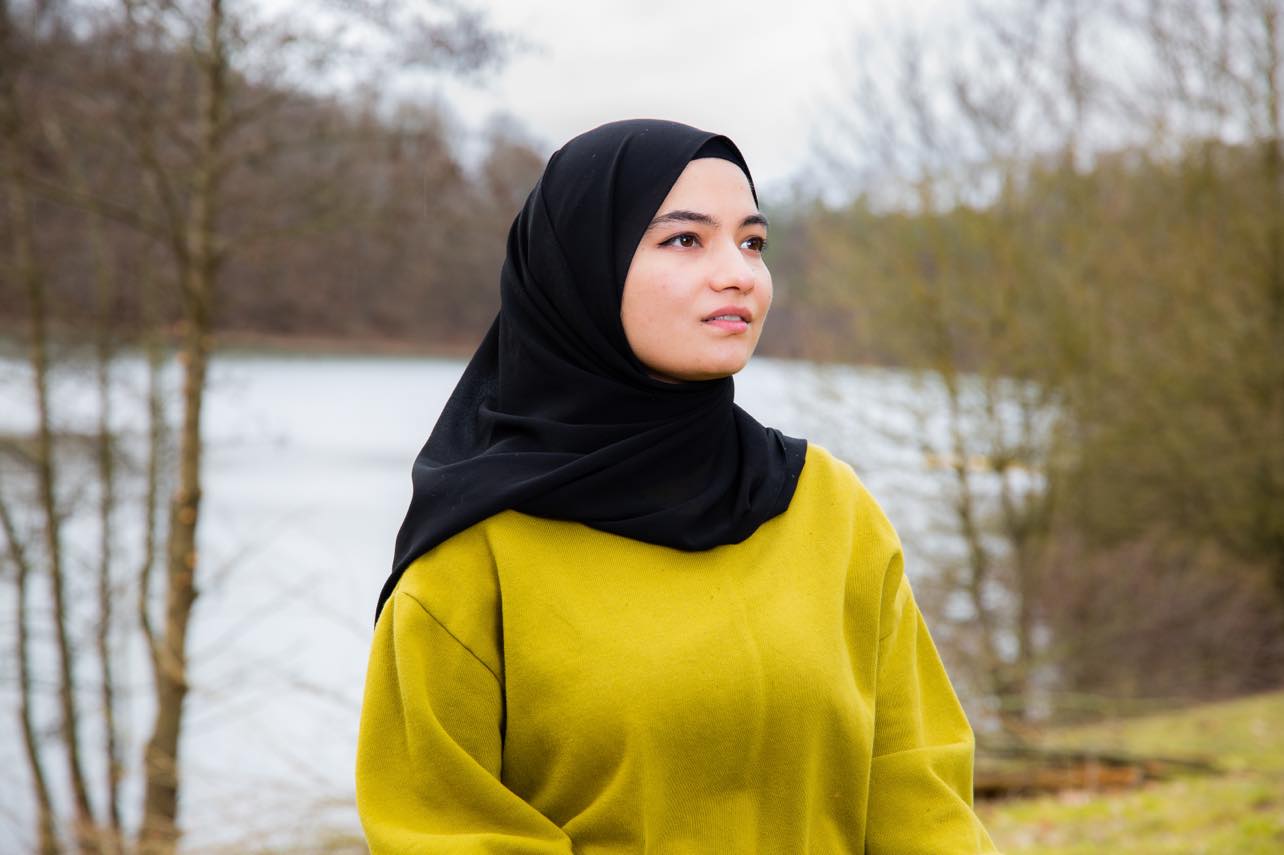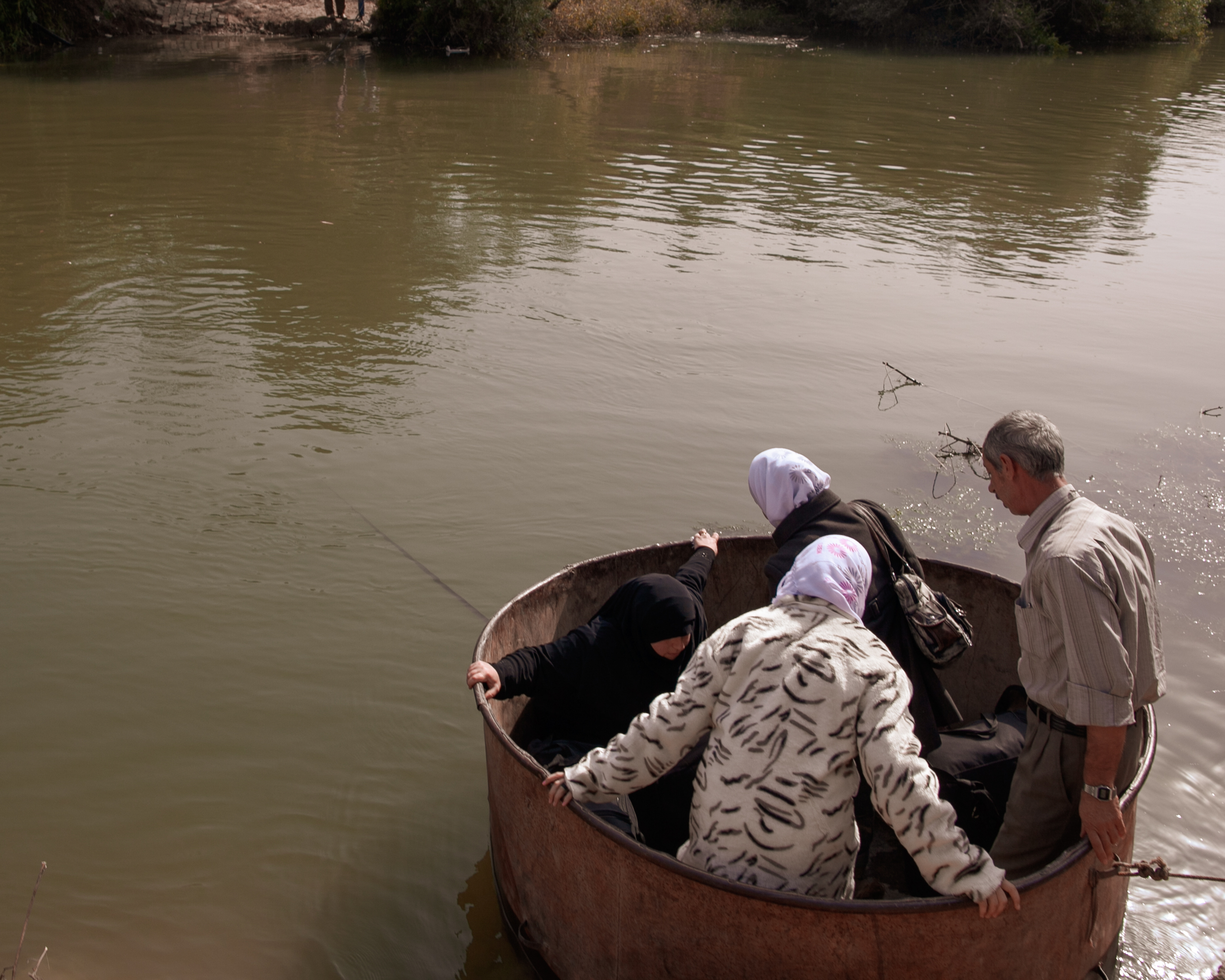A home is a singular place for a human being. Embedded in its walls, in slightly worn floors and the scent clinging to net curtains, are traces of memories and emotions. The Ukrainian writer Serhiy Zhadan writes about his childhood home, in an area of Luhansk occupied by Russian soldiers, as well as about the significance of home in general.
Photo: Agata Grzybowska
At some point, the house in which I was born came under occupation. Now you cannot reach it, you cannot enter it, you cannot touch its walls. It is a strange feeling. Anger mixed with an acute nostalgia. After all, I remember every corner, every unevenness of the walls, every apple tree branch outside the window. Was I ready for this? I was, absolutely. Absolutely.
I was born in the Luhansk region, not far from the Russian border. My whole life, Russia was right next door, on the other side of the hill. A presence that was felt, though it had little impact. We lived in a Ukrainian village. Villages in the vicinity were also ethnically Ukrainian. Here, Russia, even in Soviet times, was perceived as something neighboring, foreign. We spoke Ukrainian Surzhyk—for every two Ukrainian words there was one Russian. But nobody switched to Russian. Only when they got to the city, where Russian was the language of official publications, the language of news and propaganda. So a non-domestic language. Not ours.
Our house was built in the early seventies. My brother came to know it first; then I was born, in 1974. This is where we grew up, where we came home to from school, where we left to continue our education and live our adult lives. In 1991, I moved to Kharkiv. Thirty-one years ago.
I have always liked returning to see my parents. I liked our house. I liked the farmyard. Although with time, I distanced myself more and more, considering my home to be Kharkiv, a Ukrainian metropolis forty kilometers from the same Russia. Somehow nothing ever dislodged me from the border. With all its arbitrariness and illusoriness, it sufficed for peace and security. I have never felt that eastern Ukraine was “not completely” Ukraine, not Ukraine proper, insufficiently Ukraine, less-than-fully Ukraine. For me personally, the Ukrainian context and affiliation of our east was always obvious. In spite of everything. Despite the politics laced with pro-Russian rhetoric; an economy overtly oriented toward neighboring Russia; and the attitude of those compatriots who stubbornly refused to accept the obvious: Russia—is not here. Russia—other side of the hill. Even despite the war.
Photo: Agata Grzybowska for “Gazeta Wyborcza”
The war did not begin in February of this year. Of course it did not. It began eight years ago. In 2014, it tried to inundate Ukraine’s eastern territory through the Russian border. In some places it succeeded, in others it did not. There was little sign of hostilities near us. The fighting unfolded more to the south, around Luhansk, a hundred kilometers from the house where my brother and I were born. The Ukrainian reality was still all around us: Ukrainian authorities, blue-and-yellow flags, Ukrainian political, economic, and social realities. But something had irreparably shifted. The specter of the war had materialized. It was very close. And even if you didn’t hear the explosions, you could still sense the war’s proximity, sense that it could reach here, to these quiet Ukrainian villages dotting the border with Russia.
Since 2014, my friends and I have been involved in volunteer work. From Kharkiv we came to the Luhansk and Donetsk regions to help civilians, to help the military. I liked to visit my own people, those I had grown up around. To bring something back and learn about something. To come home to my parents. I felt a measure of relief that they had not been drawn under by the wave of war. That I could be relatively calm about them, about those who still lived there, who stayed. Calm despite the fact that Russia was still just behind the hills, and that the war was raging a hundred kilometers away. Regardless of the fact that the peace and silence in the surrounding area were deceptive. Regardless of the fact that at any moment the war could erupt here, among the buildings we grew up in.
On January 4, 2019, my dad died. I bought my mum a house near Kharkiv. She immediately agreed to move. Without my dad, she had no one to keep her there. We passed the house to the neighbors, with whom we were friends.
I continued to visit the area periodically. I volunteered at the school where I had studied, even just to stop by for a few hours on the way back from occupied Luhansk. It felt as if we had let go of the house like a giant kite; that it was now flying off to where it wanted to be and there was no reason to snatch it back and return. And yet there was a reason. Our homes don’t let go of us so easily. We were still on friendly terms with the neighbors. They allowed us to visit our former house, just to sit there. It was an uncomfortable feeling: too much good left in the past, too much uncertainty in the future. But the house was standing. You could still come back to it, open its door, feel its presence. I kept telling myself it wasn’t so important. But it was critically important. It was important to have a choice, to have that freedom.
Photo: Agata Grzybowska
This year, on February 24, Russia launched its full-scale war against Ukraine. The place where I was born, where my parents lived, and where my father’s grave remains, came under occupation.
We have practically no information from those regions. No news from friends or acquaintances. No news from the neighbors, whom we used to call for no particular reason, out of habit. I am writing this text on Day 120 of the war. A certain amount of time will pass before it is published. Even more time will pass before you read it. It is difficult to say what will have happened to the house I am writing about by the time you are reading this text. In fact, it should worry me and my mum the most. My neighbors. What will happen next to the buildings we grew up in? Will they remain standing, surviving to see us again? Or will we have no place to return to? I have no doubt that we will eventually regain the occupied territories. But what of our past selves? Will we get them back, too?
How are we to handle the future when stripped of the past? When it is knocked out from under us like a gallows stool kicked by the hangman? To what extent is our past capable of binding itself to us, of keeping us tethered to it, like an anchor lashed to the body of a drowned sailor? Should we be this dependent on walls so long unwarmed by our breath? Breath they have not needed. These are mostly rhetorical questions, addressed to no one; but if you look and listen carefully to yourself, they are significant, explaining much about our relationship to ourselves and the world at large.
I am not talking about clinging to the past, being hooked on it, having it shade every moment of the present. I am not worried about ghosts from my past. I have not left behind any particularly ghastly skeletons. The only thing that really worries and exhausts me is the need for justice. Nobody has the right to take away our homes, our past, our memory, our space. Nobody has the right to occupy our apartments. Nobody is allowed to drive us out of the places where we were born and raised, that we considered and will always consider our own, that we inhabited, that shaped us—and that without us essentially lose themselves, just as we lose ourselves without them.
Home is not a matter of territory or real estate. It is the weightlessness of air and the weight of words. It is the centrality of the gaze and the formative role played by the landscape. We are bound to our homes. Bound by bitter resentment and sweetest joy. By experience gained and opportunities lost. Our homes are the libraries that shaped us. And even if right now, at this very moment, we are prevented from rereading their books, it does not mean that we have forfeited the knowledge we absorbed in the past. Home is the impossibility of relinquishing the primary, most essential thing, which takes your breath away and strengthens your voice.
Serhiy Zhadan
Kharkiv, Ukraine
Photo: Agata Grzybowska

